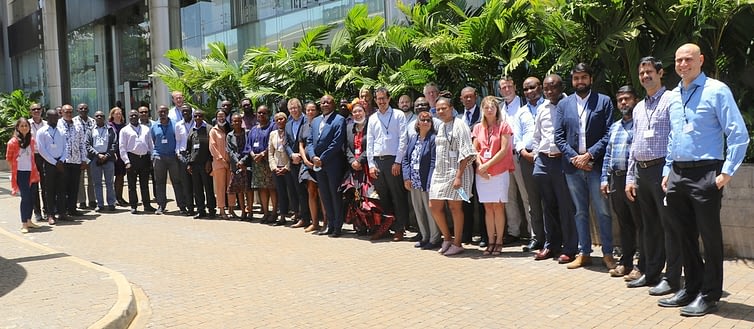The Initiative, which includes CGIAR researchers from The Alliance, the International Water Management Institute, the International Potato Center, the International Food Policy Research Institute, the International Center for Agricultural Research in the Dry Areas, the International Institute for Tropical Agriculture, and the International Maize and Wheat Improvement Center was launched in Kisumu, Kenya.
The Nature-Positive Initiative at a glance
What are the main actions?Working with stakeholders across agriculture, economic, environment, and natural resource management sectors at farm- and community-level, CGIAR researchers and partners will:
- Boost critical ecosystem services and enhance social and economic benefits, including equality,
- Tackle the root economic and political causes of environmental degradation from agricultural production,
- Harness the power of nature-based solutions and ecosystem services alongside advances in digital agriculture and agronomy to revers negative trends around natural assets, including climate, biodiversity, land, and water.
- Promote improved waste management and circular economy
Burkina Faso, Colombia, India, Kenya, and Vietnam
What global goals does this work link to?
- SDGs: 2, 5, 6, 12, 13, 15
- UNFSS Action Tracks: Nutritious Food, Nature-Positive Production, Equitable Livelihoods, Resilience
Related
March 2–3, 2022. Nairobi. Partners of CGIAR’s new regional integrated Initiative in eastern and southern Africa held a kick-off meeting . Eighty-five people participated, including national agricultural research extension programs, government representatives, private sector actors, funders and national and regional agricultural research and development organizations.
The Initiative will work with innovative multimedia platforms to change knowledge, attitudes and practices of millions of farmers in eastern and southern Africa. One key partner in this area is the Shamba Shape Up TV show and the iShamba digital platform.



No comments:
Post a Comment